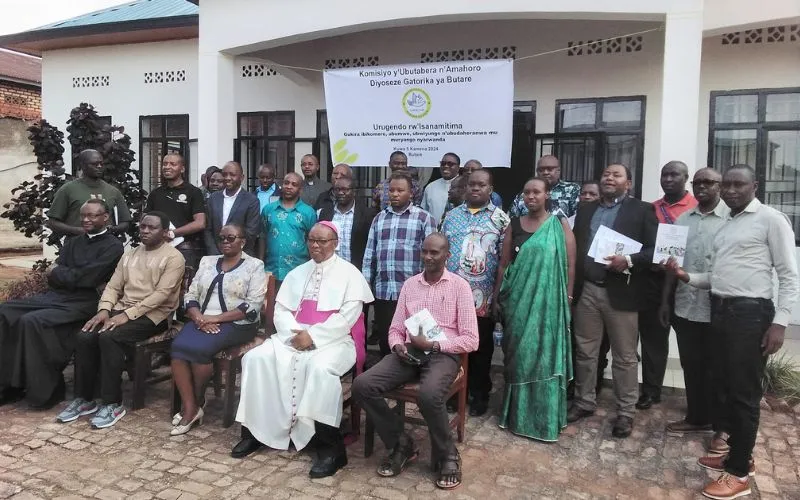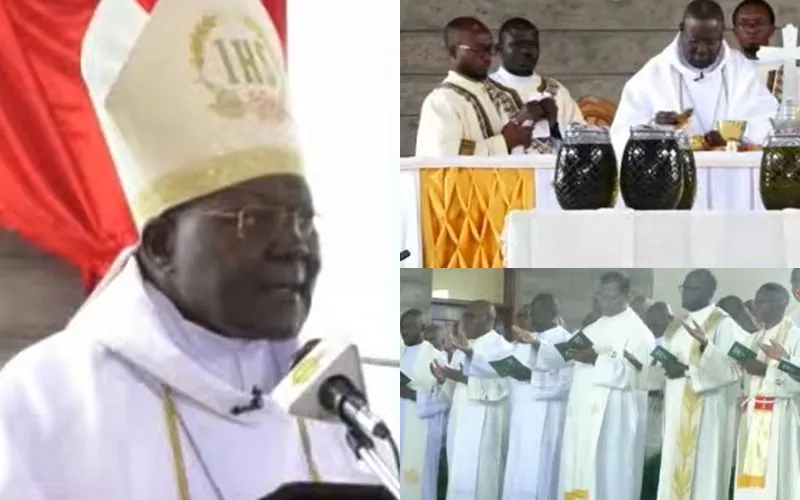Butare, 05 June, 2024 / 10:00 pm (ACI Africa).
The Catholic Diocese of Butare in Rwanda has launched a manual that seeks to foster healing, unity and reconciliation among victims of the 1994 genocide against Tutsis.
Speaking at the launch on Wednesday, June 5, the Local Ordinary of Butare Diocese provided details about the document and said it could help other countries in conflict to attain reconciliation.
“This manual is intended for those who want to understand the journey of healing. Healing wounds, unity, reconciliation and integrity,” Bishop Philippe Rukamba said during the event that was held at the Justice and Peace Commission Hall in Butare.
Titled “Guide to the Journey of the Heart, Unity, Reconciliation and Integrity of Rwandans”, the manual includes lessons and assignments to help prepare talks, and help those on the journey of healing, especially those injured by the effects of the divisions that characterized Rwanda, leading up to the genocide in which an estimated 800,000 people were killed.
Bishop Rukamba said the document can also be used in journeying with people who have experienced historical trauma and who have conflicts arising from other situations.








